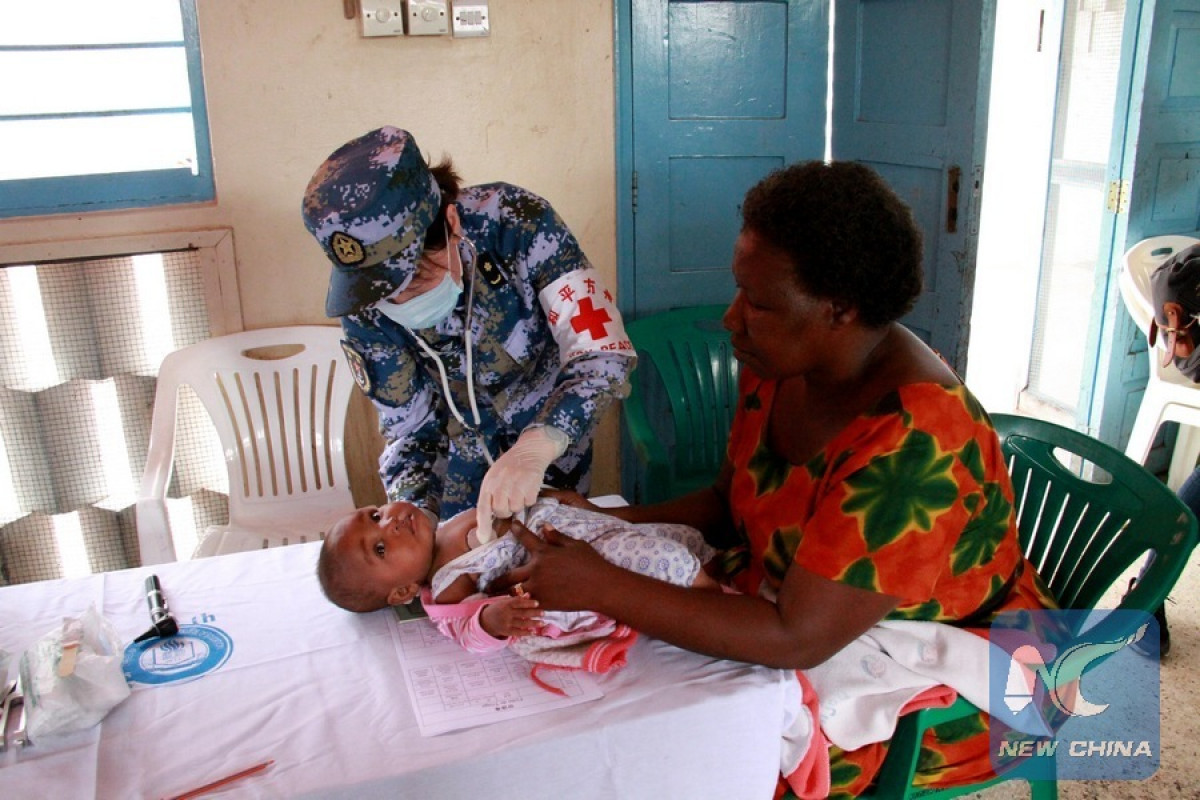Africa
China ups ante in Africa, sends Medical aid worth millions
New Delhi cannot match China’s investment and aid, but it is working alongside other options.

- Snehal Warekar
Last week, the Government of the People’s Republic of China donated medical equipment worth over a million dollars and sent dozens of medical doctors to Ethiopia. The Chinese investment delegation, consisting of representatives from giant Chinese medical technology firms and Chinese high-end medical equipment would help Ethiopia's efforts to modernize its healthcare sector.
India and China seem to be the two emerging global economies in Africa. Their growing intervention with the African countries is transforming their International relations in a dramatic way. Both the relationships i.e. Sino-Africa and Indo-Africa have evolved over time. China is Africa’s largest trading partner and the continent is also its largest source of imports. For India, Africa has become a lot more significant ground because of China’s proactive engagement in the region.
Sino-African Trade
Chinese medical support in Africa dates back half a century — in 1963, China sent 100 healthcare workers to assist Algeria after it gained independence from France. Since 1963, the country has dispatched more than 20,000 healthcare workers to 69 countries and regions. They have treated 100 million patients of the 51 countries in which China’s 52 medical teams, including 1,200 physicians, are now working, 42 are in Africa.
Health is a critical piece of the foreign aid program and China has an important role in global health. Health aid is delivered through the Chinese medical teams (CMTs), hospital construction, pharmaceutical and equipment donations, and public health/health security program support including malaria control, and health professional training programs. The CMT program is arguably the most prominent of these mechanisms and is often considered a key component of China’s foreign diplomacy, especially in Africa.
Ethiopia and China continue to enjoy an enduring and growing relationship and China has been credited the many infrastructures that are being built within the country. The bilateral trade between Ethiopia and China is now worth over USD five billion. Ethiopia, like most African nations, continues to rely on the loans of China to fund some of its infrastructures and most of the major projects in the country, such as roads, the new airport and the industrial parks across the country are contracted to Chinese firms.
China has provided about one-sixth of the external infrastructure financing for the continent so far. According to official Chinese figures gathered by the John Hopkins University, around 250,000 Chinese worked in African countries in 2014, though informal figures suggest the real number may be as high as one million.
There is a danger that when some of the African countries are unable to pay back loans, Beijing will seek control of strategic assets under its ‘debt-trap’ diplomacy. Like in Sri Lanka, China invested in profile construction projects and high-interest loans that left Sri Lanka heavily indebted to China. Sri Lanka government debt was standing 77.60% of the country's GDP in 2017, well above the 69.69% average for the 1950-2017 period. To cope up with a rising debt to China, Sri Lanka has signed agreements with China that swap loans for equity, transforming China into an owner to major infrastructure projects like Sri Lanka’s major port- Hambantota.
Indo-African relations:
India’s trade with Africa follows trends that have long defined the continent’s economic relations with the outside world.
Mahatma Gandhi envisioned that ‘the commerce between India and Africa will be of ideas and services, not of manufactured goods against raw materials after the fashion of western exploiters’. This is no longer the case. India has a long history of political engagement with Africa and has a very connected diaspora on the continent. India’s founding fathers encouraged and supported Africa in its freedom struggle to become an independent nation. Both the regions joined together with the continent against hegemonic powers during the Cold War under the non-aligned movement.
Fast forward decades later, commerce has empowered India’s modern ties with Africa. In 2002-03, two-way trade was a paltry $6.5 billion. Trade with Africa rose to over $70 billion by 2012-2013. The increase has been so immersive that if China were not present, India would be Africa’s largest trading partner. At $63 billion in 2017-18, its trade easily surpassed the United States and Africa’s main European partners.
India and China’s comparative involvement in Africa:
Chinese trade with Africa’s 54 countries stood at $172 billion in 2017, nearly three times India’s own. Both countries deny that there is no competition between them in Africa. But the comparison is inevitable in this regard. It also needs to be noted that the health sectors of both countries have immense differences. When China spends 4.98% of its GDP on health, India has just planned to climb at 2.5% in the upcoming years. In 2018, the health budget of India was 1.02% It clearly shows that India itself is not self-sufficient in providing better health policies to its citizens. Therefore it is difficult for India to compete with China in the engagements in the health sector.
New Delhi cannot match China’s investment and aid, but it is working alongside other options. One of these is the Asia Africa Growth Corridor, an Indo-Japanese venture that seeks to promote connectivity and economic relations with Africa.
At the same time, India’s long neglect and the inadequate economic capacity are serious disadvantages in the face of China’s strategic push and economic power. Nonetheless, India’s promises and commitments will be judged against China’s projects in the region. New Delhi’s biggest challenge has been its inability to deliver on the promises that it makes. This is the quest of new kind of imperialism where both the countries are trying to disturb the sovereignty of the underdeveloped countries especially African. It’s a new type of colonialism, where sovereignty is illusionary.
Snehal Warekar is an Intern with Indie Journal.





